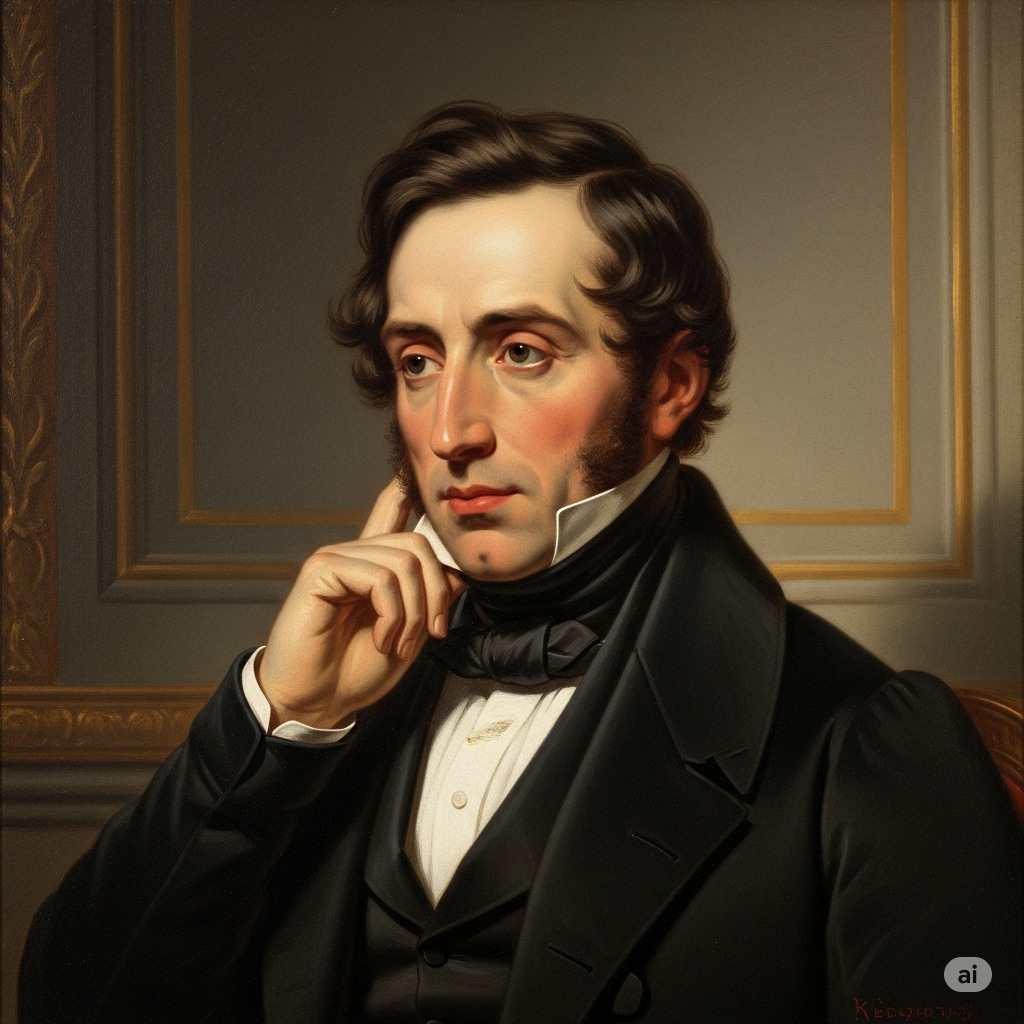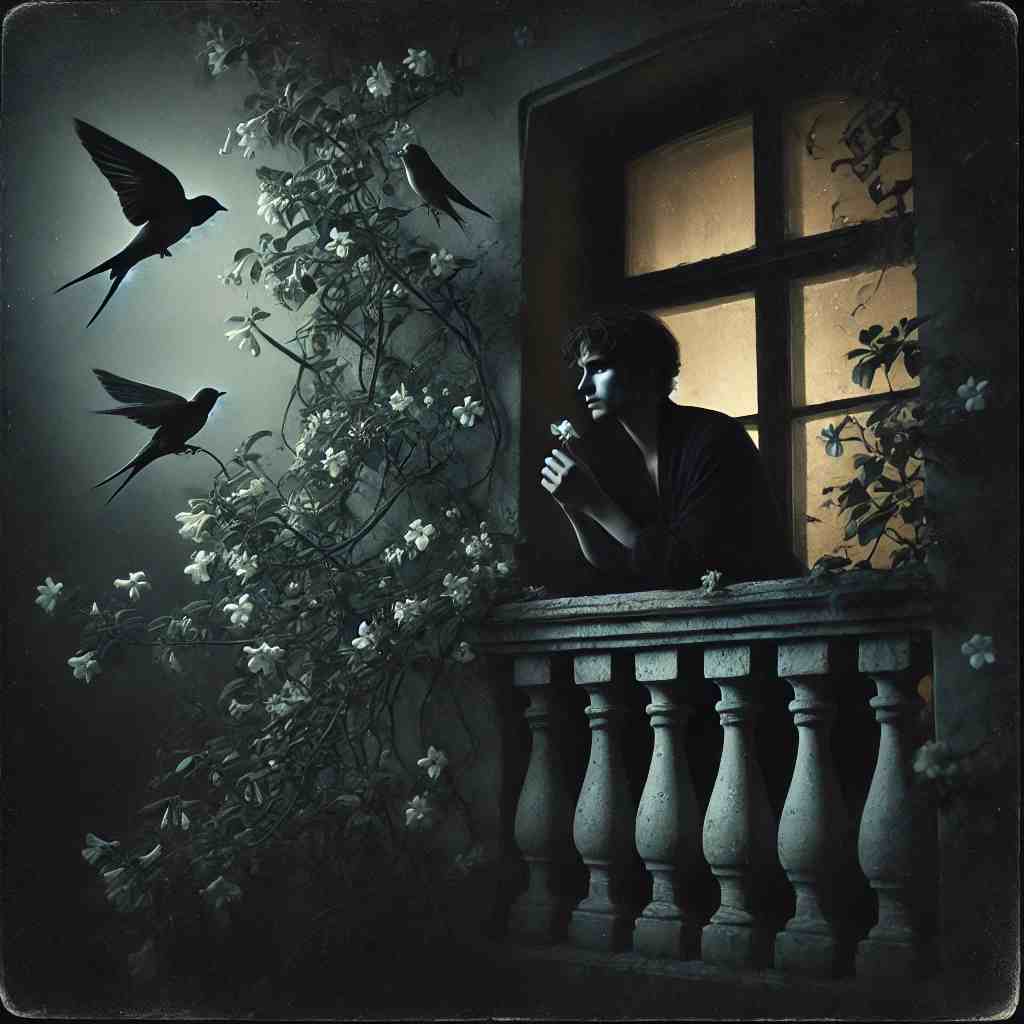1 Poems by Gustavo Adolfo Bécquer
1836 - 1870
Gustavo Adolfo Bécquer Biography
Gustavo Adolfo Bécquer, a Spanish poet and writer of the 19th century, holds an enduring place in Spanish literature, and he is often regarded as one of the most significant figures of Romanticism in Spain. Born in 1836, he came of age during a period of profound cultural and political upheaval, and his works reflect a blend of Romantic sensibility, lyrical melancholy, and intense introspection. Bécquer's poetry, much of it centered on themes of love, solitude, and the sublime, foreshadowed the introspective tendencies of modernist and Symbolist poets. His major works, including Rimas (Rhymes) and Leyendas (Legends), stand as testaments to the evocative power of poetic language and narrative imagination, blending personal reflection with universal themes of longing and existential despair. Through a life marked by poverty, ill health, and heartbreak, Bécquer emerged as a uniquely influential voice whose legacy has continued to captivate readers and scholars alike.
Bécquer was born on February 17, 1836, in Seville, Spain, into a family of artists. His father, José Domínguez Bécquer, was a well-known painter of Sevillian customs and folklore, and his artistic influence permeated young Gustavo’s life, fostering his sensitivity to beauty, nature, and the arts. When his father died in 1841, the family’s financial situation deteriorated, plunging Bécquer into a life shadowed by economic hardship, an experience that would inform the melancholy and introspective tones of his work. His mother passed away only a few years later, leaving Bécquer and his siblings orphaned by the time he was 11 years old. He was subsequently raised by his godmother and educated at the Royal Academy of the Fine Arts of Saint Elizabeth of Hungary in Seville, where he learned classical literature, art, and history. The combination of these early losses and a fascination with art and literature would soon draw him into a world of Romantic ideals and poetic introspection.
As a teenager, Bécquer’s interest in literature deepened. He admired Spanish Golden Age writers like Francisco de Quevedo and Lope de Vega, as well as foreign Romantics such as Goethe and Byron, whose melancholic portrayals of human emotion resonated deeply with him. By the early 1850s, Bécquer moved to Madrid with the ambition of making a name for himself as a writer. Yet Madrid’s literary scene was dominated by realist and costumbrista writers who portrayed the everyday life and customs of Spain, styles that contrasted sharply with Bécquer’s Romantic sensibilities. Struggling financially, he held various jobs in journalism and government positions, but his literary aspirations remained largely unfulfilled. His early years in Madrid were characterized by disappointment and frustration, as he encountered rejection and the harsh realities of the publishing world. However, it was during this period of struggle that Bécquer developed the themes that would later define his most famous works—love, loss, longing, and the search for transcendence in a transient world.
Bécquer’s major work, Rimas, a collection of lyrical poems, is considered one of the most exquisite achievements of Spanish Romanticism. Initially unpublished during his lifetime, Rimas is a series of meditations on love, beauty, nature, and the existential solitude that defines the Romantic individual. His approach to poetry was deeply influenced by both the traditional Spanish forms and the more personal, confessional style pioneered by Romantic poets. His verses often feature fluid, musical language and an intimate tone that departs from the more formal poetic structures of his contemporaries. For instance, Rima LIII ("Volverán las oscuras golondrinas") is one of his best-known poems, expressing the heartbreak of lost love and the permanence of nature juxtaposed with the ephemerality of human emotion. The refrain of returning swallows that "will not be the same" serves as a powerful metaphor for the unique, unrepeatable quality of human experience, a notion that reflects Bécquer’s own sense of the transient beauty and pain of life.
Stylistically, Bécquer’s Rimas are notable for their simplicity and clarity. Unlike many Romantic poets who favored elaborate metaphors and complex structures, Bécquer wrote with an economy of language that heightened the emotional intensity of his poetry. His diction is plain yet poignant, direct yet hauntingly evocative, creating a sense of intimacy with the reader. This stylistic choice, along with his use of personal pronouns and direct address, gives his poems a confessional quality that speaks to universal experiences of love, despair, and longing. Bécquer’s sensitivity to the music of language—the rhythm, sound, and subtle repetition within his lines—draws the reader into a world where words seem to hover on the brink of silence, as if to capture emotions too fragile to be fully expressed. This stylistic minimalism would later influence poets in the Symbolist and Modernist movements, including Antonio Machado and Juan Ramón Jiménez, who admired Bécquer’s ability to convey profound emotion with a restrained, lyrical simplicity.
Alongside Rimas, Bécquer’s Leyendas are another significant component of his literary legacy. These prose tales, written between 1858 and 1864, draw heavily on Spanish folklore, Gothic elements, and supernatural themes, reflecting his fascination with the mysterious and the otherworldly. Each story in Leyendas often centers on a tragic or supernatural event, set against a backdrop of Medieval Spain or remote, exotic locales. The legends reveal Bécquer’s keen interest in the mystical and metaphysical, with stories that explore themes of faith, morality, and the power of the unseen. One of the best-known tales, “El monte de las ánimas” (“The Mount of Souls”), revolves around a haunted mountain and the tragic love between two young lovers, Beatriz and Alonso. With its eerie atmospherics, elements of the Gothic tradition, and tragic denouement, this tale exemplifies the Romantic obsession with death, the supernatural, and the sublime. Through the Leyendas, Bécquer delves into the darker realms of human nature, capturing the essence of a Romanticism that sought to transcend the rational and the mundane, reaching for a beauty that lies beyond earthly constraints.
Though Bécquer’s works were largely unrecognized during his lifetime, his influence on Spanish literature cannot be overstated. His poetry, with its themes of unattainable love, existential sorrow, and fleeting beauty, resonated deeply with later generations, particularly during the Spanish Modernismo movement at the turn of the 20th century. Figures such as Rubén Darío and Antonio Machado found inspiration in Bécquer’s intimate style and melancholic themes, viewing him as a precursor to the aesthetic ideals of Modernismo. Bécquer’s writing, often stripped of elaborate ornamentation and imbued with a raw, emotional clarity, paved the way for a more introspective, personal mode of Spanish poetry, one that prioritized the subjective experience of the poet. His influence also extended to 20th-century writers like Federico García Lorca, whose own poetry often echoed Bécquer’s themes of love, death, and the ineffable mysteries of existence.
While his literary output was limited due to his untimely death at the age of 34 from tuberculosis, Bécquer’s impact on Spanish literature is profound and lasting. His vision of poetry as an expression of the inner self, a medium for exploring the depths of human emotion, reshaped Spanish Romanticism and foreshadowed the confessional tone that would come to dominate much of modern poetry. Bécquer’s life, marked by poverty, failed relationships, and the early loss of loved ones, mirrors the themes of longing and loss that permeate his work. He saw poetry as a deeply personal endeavor, an attempt to capture the ephemeral beauty of life and the inescapable sorrow of human existence.
Today, Bécquer’s works continue to resonate with readers around the world. His vision of love as an ideal that remains forever elusive, his sense of beauty as something eternally fleeting, and his exploration of the mysteries that lie beyond the physical world speak to universal human experiences. Bécquer’s poetry and prose invite readers into a world of lyrical melancholy and introspective beauty, a world where every line seems to hover on the edge of silence, capturing moments of profound emotion and fleeting insight. His ability to distill complex emotions into simple, musical language gives his work a timeless quality, allowing it to transcend the historical and cultural specificities of 19th-century Spain and reach readers across cultures and generations.
Gustavo Adolfo Bécquer remains an icon of Spanish Romanticism, his work a testament to the power of poetry to express the inexpressible, to give form to the ineffable mysteries of human experience. Through his lyrical verse and haunting prose, he left a legacy of poetic beauty and emotional depth that continues to inspire, offering readers a glimpse into the heart of Romantic longing and the universal search for transcendence in a transient world. His Rimas and Leyendas stand as enduring monuments to a poet who, despite a life marked by hardship and unfulfilled dreams, found in his art a means of capturing the elusive,
This text was generated by AI and is for reference only. Learn more
Username Information
No username is open
Unique usernames are free to use, but donations are always appreciated.
Quick Links
© 2024-2025 R.I.Chalmers (V2Melody).

All music on this site by R.I.Chalmers (V2Melody) is licensed under a Creative Commons Attribution-NonCommercial 4.0 International License.
Attribution Requirement:
When using this music, you must give appropriate credit by including the following statement (or equivalent) wherever the music is used or credited:
"Music by R.I.Chalmers (V2Melody) – https://v2melody.com"
Support My Work:
If you enjoy this music and would like to support future creations, donations are always welcome but never required.
Donate


